-
I predict solar storms
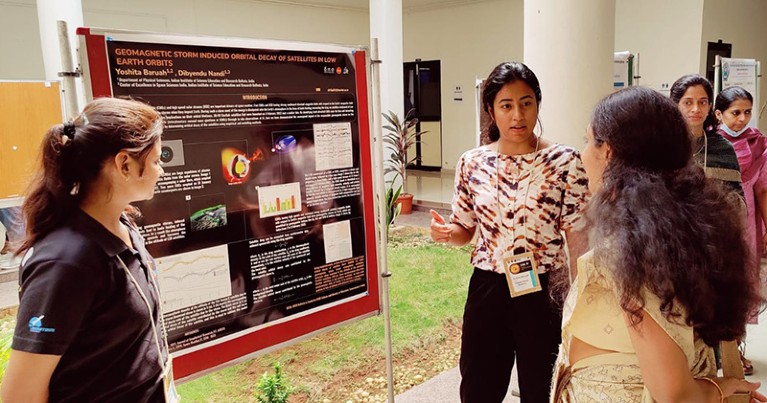
When not forecasting the solar weather, Yoshita Baruah (centre) enjoys sharing her knowledge.Credit: Dibyendu Nandi Yoshita Baruah studies the solar storms that shape space weather, and forecasts when they might hit Earth or knock satellites off their orbits. Predicting the space weather around Earth, she says, will one day be as mainstream as forecasting the…
-
Superconductivity debunker: this physicist exposed flaws in a blockbuster claim
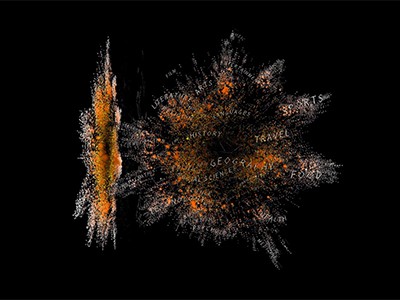
This story is part of Nature’s 10, an annual list compiled by Nature’s editors exploring key developments in science and the individuals who contributed to them. James Hamlin remembers the first time an experiment deceived him. As a graduate student, Hamlin saw signs of superconductivity — electrons flowing without resistance — in an unexpected material.…
-
A synthesis of evidence for policy from behavioural science during COVID-19
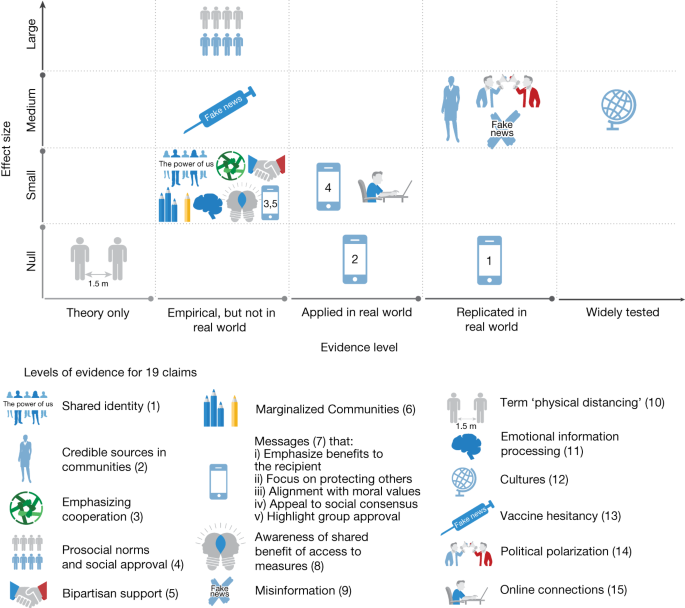
Abstract Scientific evidence regularly guides policy decisions1, with behavioural science increasingly part of this process2. In April 2020, an influential paper3 proposed 19 policy recommendations (‘claims’) detailing how evidence from behavioural science could contribute to efforts to reduce impacts and end the COVID-19 pandemic. Here we assess 747 pandemic-related research articles that empirically investigated those…
-
Where science meets Indian economics: in five charts
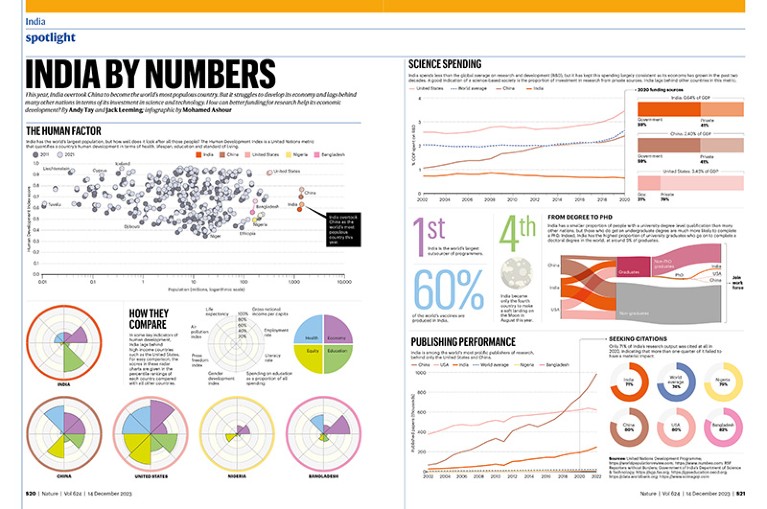
Download a PDF of this graphic This year, India overtook China to become the world’s most populous country. But it struggles to develop its economy and lags behind many other nations in terms of its investment in science and technology. How can better funding for research help its economic development? The human factor India has…
-
Research in Chornobyl zone restarts amid ravages of war

In early 2022, ecologist Bohdan Prots was ready to begin a bold new project to restore ecosystems around the Chornobyl nuclear power plant in northern Ukraine. Prots and his team were preparing to recreate lost wetlands there in an effort to rewild them and cut the risks of wildfires that spread radioactivity. His first step…
-
45 Simple and Fun Preschool Science Experiments and Activities

Every day is a new opportunity for toddlers to ask “Why?” over and over. Tap into that curiosity with these fun and engaging science activities for preschoolers. These simple experiments incorporate many preschool favorites like playing with bubbles or water, making arts and crafts, and, of course, making a mess! To make things even easier,…
-
Fungi and flatworms: Scientists want more diverse nature emojis

Too many cats, not enough crustaceans: The current emoji catalog doesn’t accurately represent the breadth of biodiversity seen in nature — and that hurts conservation efforts, according to scientists. An analysis published Monday in the journal iScience found that while animals are well represented by the current emoji catalog, plants, fungi, and microorganisms get short…
-
‘Head-scratcher’: first look at asteroid dust brought to Earth offers surprises
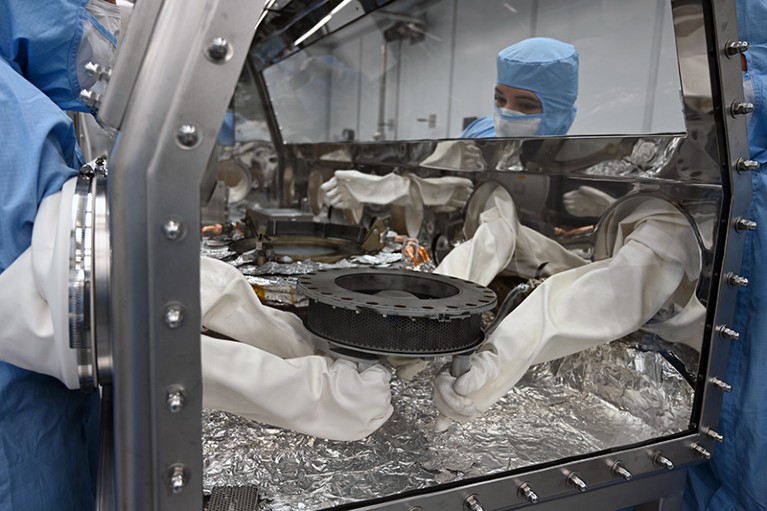
Researchers handle OSIRIS-REx’s sample canister inside a glovebox at the Johnson Space Center in Houston, Texas.Credit: NASA/Kimberly Allums San Francisco, California In the two and a half months since NASA’s first asteroid sample-return mission landed safely on Earth, technicians have carefully plucked more than 70 grams of asteroid dust and pebbles from the outside of…
-
How to make data open? Stop overlooking librarians
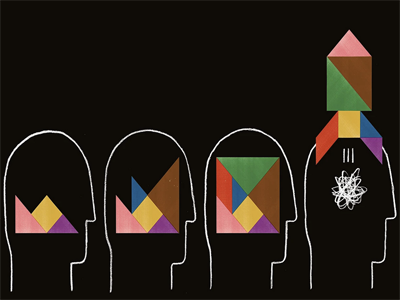
The ‘Year of Open Science’, as declared by the US Office of Science and Technology Policy (OSTP), is now wrapping up. This followed an August 2022 memo from OSTP acting director Alondra Nelson, which mandated that data and peer-reviewed publications from federally funded research should be made freely accessible by the end of 2025. Federal…
-
More than 10,000 research papers were retracted in 2023
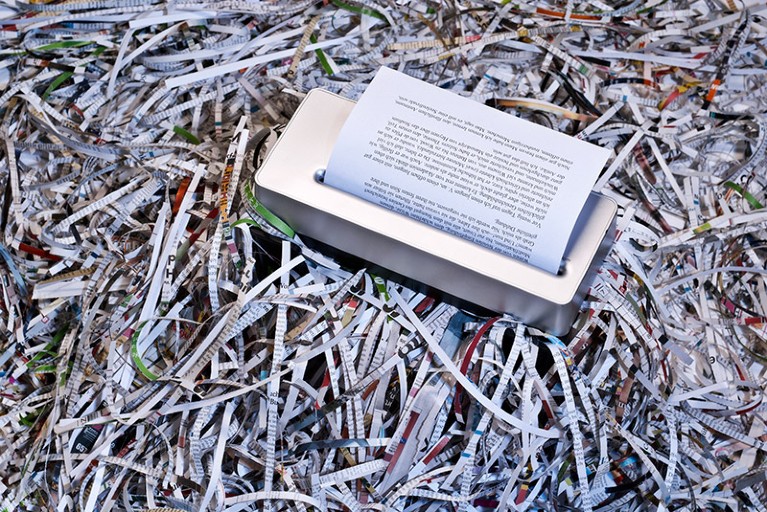
Retractions are skyrocketing as publishers work to remove sham articles from the literature.Credit: Klaus Ohlenschläger/Getty The number of retractions issued for research articles in 2023 has passed 10,000 — smashing annual records — as publishers struggle to clean up a slew of sham papers and peer-review fraud. Among large research-producing nations, Saudi Arabia, Pakistan, Russia…